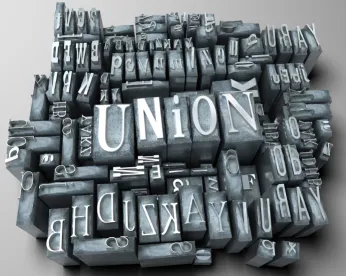On October 28, 2019, the Ninth Circuit, following in the footsteps of the D.C. Circuit and the Second Circuit, affirmed an order entered by the NLRB confirming that prohibitions on secondary boycotts under Section 8(b)(4)(i)(B) of the NLRA do not violate the First Amendment of the United States Constitution. Nat’l Labor Relations Bd. v. Int’l Ass’n of Bridge, Structural, Ornamental, & Reinforcing Iron Workers, Local 229, AFL-CIO, No. 17-73210, 2019 WL 5539505 (9th Cir. Oct. 28, 2019).
Facts
A union was hired by a subcontractor to perform work at a construction site. Sometime after work started, the union engaged in a strike due to allegedly substandard wages. The union’s activity included picketing from August through November 2016. At the start of the picketing, a business agent for the union engaged in conversations with neutral employees of a different subcontractor regarding “Picket Line Etiquette,” which included, among other things, texting and calling neutral employees and delivering flyers to them in an effort to get these employees to stop working. The subcontractor filed an unfair labor practice under Section 8(b)(4)(i)(B) of the Act alleging that the Union induced a secondary boycott by directly encouraging neutral employees to support the strike.
Analysis
The union conceded its activities violated the NLRA by communicating with and distributing flyers to neutral employees in an effort to get them to stop working. However, the union claimed that decades of NLRB case law was unconstitutional and that its activity was protected as free speech under the First Amendment of the United States Constitution pursuant to Reed v. Town of Gilbert, 135 S. Ct. 2218 (2015), where the Supreme Court applied strict scrutiny to restrictions imposed on content-based restrictions on freedom of speech.
In a brief opinion, the Ninth Circuit found the union’s argument unpersuasive because here, unlike in Reed, the issue was not the content of the communications but rather the purpose of those communications. The union communicated directly with neutral employees in an attempt to persuade them to engage in a secondary boycott to gain an unlawful unfair advantage in a labor dispute. The Court relied upon International Brotherhood of Electrical Workers v. NLRB (IBEW), 341 U.S. 694 (1951), where the Supreme Court found that the NLRA’s prohibition on secondary boycotts does not unlawfully abridge free speech. Previously, two other Circuit Courts (D.C. Circuit and Second Circuit) have addressed this same issue and came out the same way: the First Amendment protections on freedom of speech do not absolve Unions when their communications are directed at neutral employees in an attempt to induce a secondary boycott. See Warshawsky & Co. v. NLRB, 182 F.3d 948 (D.C. Cir. 1999); NLRB v. Local Union No. 3, Int’l Bhd. Of Elec. Workers, 477 F.2d 260 (2d Cir. 1973).
Takeaways
The secondary boycott provisions of the NLRA are among the violations the agency takes most seriously because of the impact such conduct can have on employers not directly involved in a labor dispute. Repeat violations of the secondary boycott provisions can lead to increased oversight and sanctions. This is why unions almost always settle such charges early in the process, usually by agreeing to walk away from the dispute. The union’s argument deserves an “A” for effort, but it was unlikely that any federal appeals court was suddenly going to declare secondary boycott activity to be a “free speech right” of union representatives.





 />i
/>i

